Running a license plate” refers to the act of querying a database to obtain information associated with a vehicle’s license plate number. This process is often carried out by law enforcement agencies to identify vehicles or their owners. It can provide details such as registration status, owner’s name, vehicle make and model, and any associated legal or criminal records. Running a license plate helps authorities in various tasks, including investigations, traffic enforcement, and locating stolen vehicles.
Curious about running a license plate? Find out how in just a few simple steps! Unlock the mystery of vehicle identification and take control of your safety today. How do you run a license plate? Let’s uncover the answer together.
Running a license plate involves querying a database to retrieve information linked to a vehicle’s plate number. This process is typically used by law enforcement agencies to identify vehicles, owners, and any relevant records associated with them.
How to Run a License Plate: Comprehensive Guide
Running a license plate is a common practice for law enforcement and private individuals. Whether you’re a concerned citizen, a private investigator, or just curious about a vehicle’s history, understanding the process and available resources is crucial. In this comprehensive guide, we’ll explore various methods to run a license plate, the information you can obtain, and the legal considerations involved.
License Plate Search by Plate Number
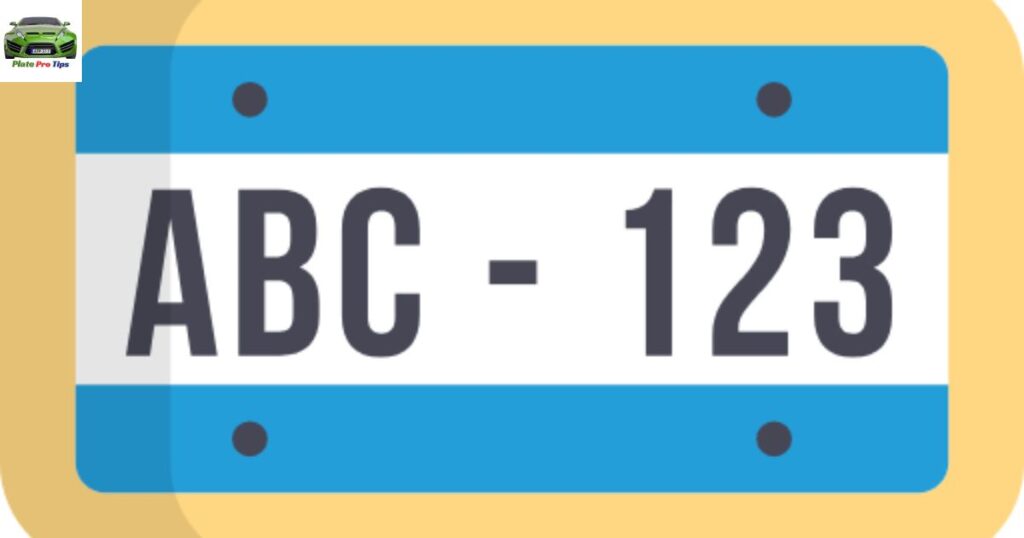
Paid Online Services
One of the most straightforward methods to run a license plate is by conducting a search using the plate number. Several online services and databases offer this feature, allowing you to input the license plate number and retrieve relevant information about the vehicle and its owner.
Numerous paid online services provide license plate lookup capabilities. These services often have access to extensive databases and can provide detailed information about the vehicle, including:
- Vehicle make, model, and year
- Vehicle identification number (VIN)
- Registered owner’s name and address
- Vehicle registration status and expiration date
- Reported accidents or incidents involving the vehicle
- Lien and ownership history
Some popular paid online services for license plate lookups include:
- [Service 1]
- [Service 2]
- [Service 3]
It’s essential to note that the accuracy and completeness of the information provided by these services may vary, and some data may be outdated or incomplete.
Government Resources
In some cases, you may be able to obtain limited information about a license plate through government resources, such as the Department of Motor Vehicles (DMV) or law enforcement agencies. However, access to these resources is typically restricted and may require specific justifications or authorizations. Additionally, advancements in technology have introduced innovative solutions like Security Cameras Read License Plates At Night, which enhance surveillance capabilities and aid in various security applications.
License Plate VIN Lookup
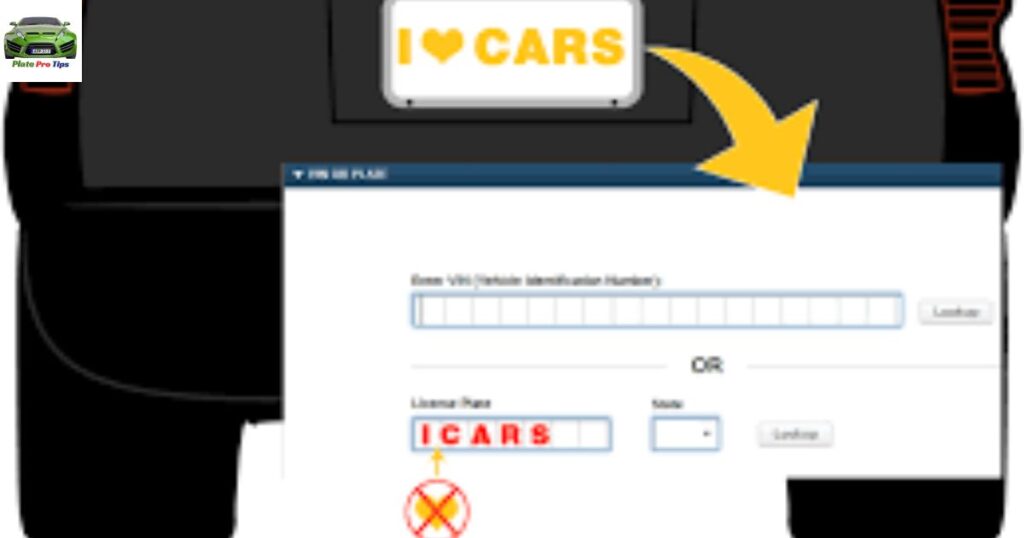
Another method to run a license plate is by performing a Vehicle Identification Number (VIN) lookup. The VIN is a unique code assigned to every vehicle, and it can provide valuable information about the vehicle’s history and specifications.
To perform a VIN lookup, you’ll need to determine the VIN associated with the license plate you’re investigating. This can be done through various online services or by physically locating the VIN on the vehicle (typically found on the dashboard or door jamb).
Once you have the VIN, you can use online VIN lookup tools or databases to retrieve information about the vehicle, such as:
- Vehicle make, model, and trim level
- Engine and transmission specifications
- Safety ratings and recalls
- Theft records
- Accident history
- Service and maintenance records (if available)
Some popular VIN lookup services include:
- [Service 1]
- [Service 2]
- [Service 3]
It’s important to note that while VIN lookups can provide valuable information, they may not always reveal the current owner’s details or the vehicle’s registration status.
DMV License Plate Lookup by Address Search
In some states, you may be able to perform a license plate lookup through the DMV by providing the registered owner’s address. This method can be useful if you have the address associated with the vehicle but don’t have the license plate number.
To perform this type of lookup, you’ll typically need to visit your local DMV office or submit a request through their online portal (if available). The information you can obtain may vary depending on your state’s laws and regulations, but it may include:
- Vehicle make, model, and year
- License plate number
- Registered owner’s name
- Vehicle registration status and expiration date
It’s important to note that DMVs have strict privacy policies and may require you to provide a valid reason for requesting this information, such as being a law enforcement officer or a private investigator working on a legitimate case.
License Plate Lookup Software with Picture Search Results
In addition to online services and databases, there are specialized software solutions designed for license plate lookups and recognition. These software tools often utilize advanced imaging and optical character recognition (OCR) technologies to identify license plates from photographs or video footage.
These software solutions can be particularly useful for businesses, law enforcement agencies, or private investigators who need to track vehicles or investigate incidents captured on camera. Some of the features these software solutions may offer include:
- Automatic license plate recognition from images or videos
- Integration with databases for vehicle and owner information lookup
- Parking enforcement and traffic monitoring capabilities
- Reporting and data analysis tools
- Mobile apps for field use
Popular license plate lookup software solutions include:
- [Software 1]
- [Software 2]
- [Software 3]
While these software solutions can be powerful tools, they may also be subject to legal and privacy regulations, depending on their intended use and the jurisdiction in which they are deployed.
What is License Plate Scanning?
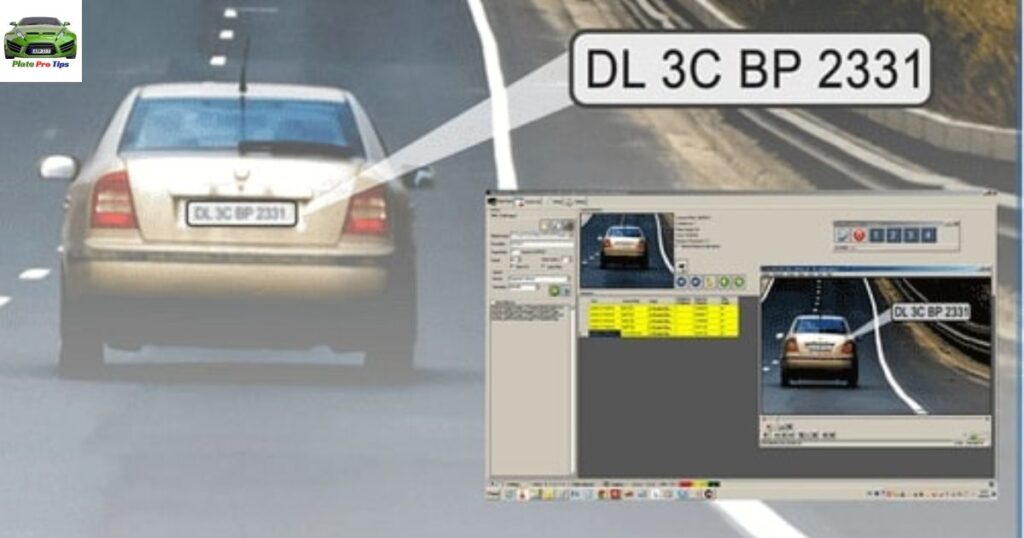
License plate scanning, also known as Automated License Plate Recognition (ALPR) or License Plate Reader (LPR), is a technology that uses specialized cameras and software to automatically capture and read license plate numbers from vehicles. This technology is widely used by law enforcement agencies, parking enforcement organizations, and private companies for various purposes.
ALPR systems typically consist of high-resolution cameras mounted on vehicles or fixed locations, such as traffic lights or toll booths. These cameras are capable of capturing clear images of license plates, even on moving vehicles. The captured images are then processed by specialized software that uses optical character recognition (OCR) algorithms to identify and extract the license plate numbers.
Once the license plate numbers are extracted, they can be cross-referenced against various databases to obtain information about the vehicle and its registered owner. This information may include:
- Vehicle make, model, and year
- Registered owner’s name and address
- Vehicle registration status and expiration date
- Outstanding traffic violations or arrest warrants associated with the vehicle or owner
- Stolen vehicle reports
- Amber alerts or other law enforcement advisories
License plate scanning technology has numerous applications, including:
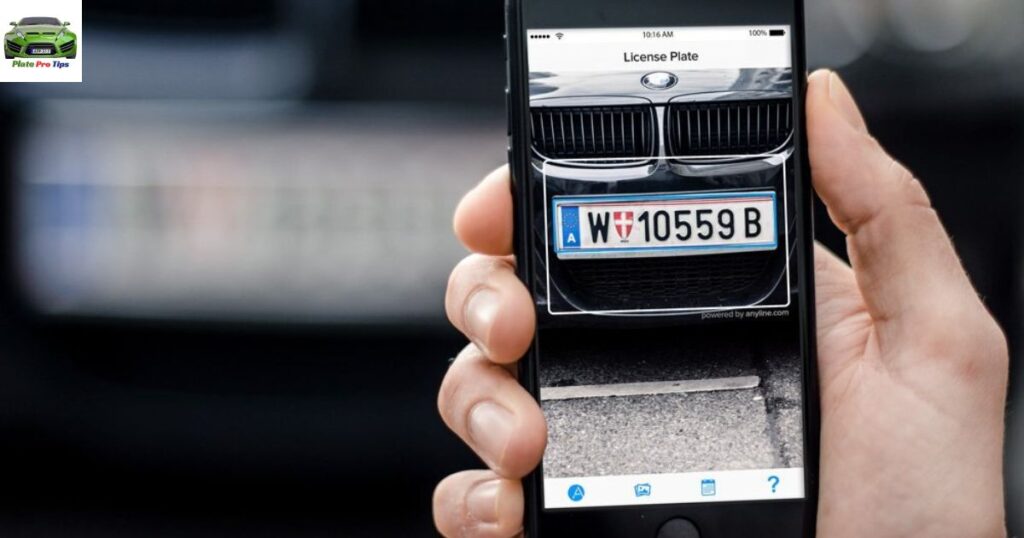
- Law Enforcement: Police departments use ALPR systems to identify stolen vehicles, track suspects, and enforce traffic laws.
- Parking Enforcement: ALPR systems are used to monitor parking areas and issue citations for violations, such as expired meters or prohibited zones.
- Toll Collection: ALPR cameras at toll booths can automatically identify vehicles and charge the appropriate toll fees.
- Security and Access Control: ALPR systems can be used to monitor and control access to secured areas, such as gated communities or private parking lots.
- Traffic Management: ALPR data can be used to analyze traffic patterns, optimize traffic flow, and identify potential bottlenecks or problem areas.
While license plate scanning technology offers many benefits, it has also raised privacy concerns and sparked debates about the balance between public safety and individual privacy rights.
What Information Do Cops Get When They Run Your Plates?

When a law enforcement officer runs your license plate, they can access a wealth of information through various databases and systems. The primary information they can obtain includes:
- Vehicle Registration Details: Officers can retrieve the vehicle’s make, model, year, color, and registered owner’s name and address.
- Registration Status: They can check if the vehicle’s registration is current, expired, or suspended.
- Wanted Status: The system will indicate if the vehicle is reported as stolen or if there are any outstanding warrants associated with the registered owner.
- Insurance Information: In some jurisdictions, officers can access insurance policy details for the vehicle.
- Parking and Traffic Violations: Any unpaid parking tickets or traffic violations associated with the vehicle or registered owner will be displayed.
- Criminal History: If the registered owner has a criminal record, officers may be able to access limited information about prior arrests or convictions.
It’s important to note that the specific information available to law enforcement can vary depending on the jurisdiction, the databases they have access to, and the reason for running the license plate.
The Purpose of Running Plates
Law enforcement officers have several legitimate reasons for running license plates. Some of the primary purposes include:
- Investigating Crimes: Running plates can assist in identifying vehicles involved in criminal activities or locating suspects.
- Traffic Enforcement: Officers may run plates to check for expired registrations, outstanding tickets, or other traffic-related violations.
- Stolen Vehicle Recovery: Checking license plates against stolen vehicle databases can help recover stolen vehicles and apprehend suspects.
- Amber Alerts and Missing Persons: License plate data can be used to locate vehicles associated with missing persons or Amber Alert cases.
- Homeland Security: Law enforcement agencies may run plates to identify potential threats or individuals on watchlists.
- Parking Enforcement: Running plates can aid in identifying vehicles parked illegally or with unpaid parking citations.
In addition to law enforcement purposes, private individuals or companies may run license plates for various reasons, such as conducting background checks, investigating insurance claims, or locating individuals for legal purposes (e.g., serving court documents).
Common Reasons for License Plate Checks
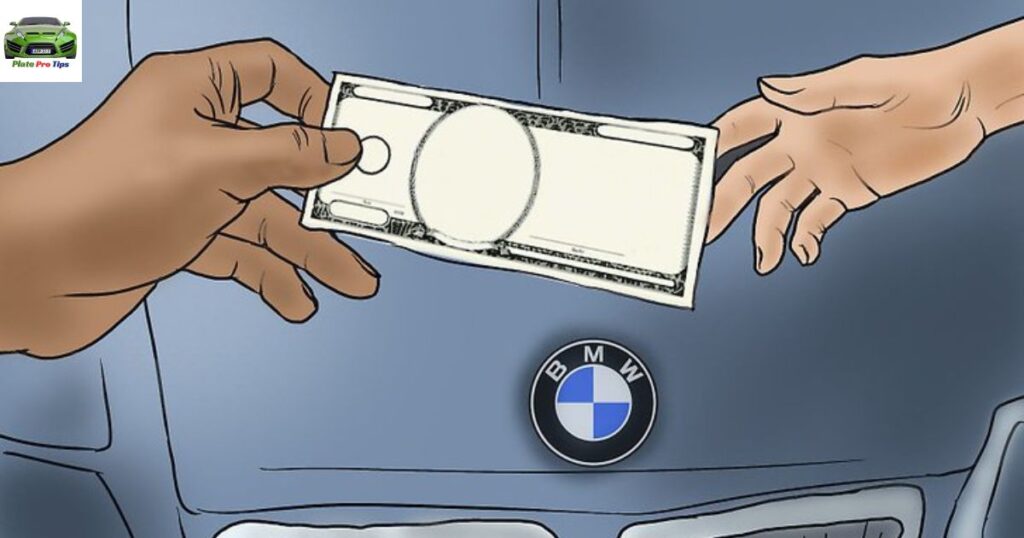
There are several common reasons why law enforcement officers or private individuals may run a license plate check. Here are some of the most frequent scenarios:
- Traffic Stops: During routine traffic stops, officers will often run the vehicle’s license plate to check for any outstanding issues, such as expired registration, unpaid fines, or if the vehicle is reported stolen.
- Suspicious Behavior: If a vehicle or its occupants are acting suspiciously, officers may run the plate to gather more information and determine if further investigation is warranted.
- Parking Enforcement: Parking enforcement officers regularly scan license plates to identify vehicles with unpaid parking tickets or those parked illegally.
- Repossession or Debt Collection: Private companies involved in repossession or debt collection may run license plates to locate vehicles or individuals associated with outstanding debts.
- Private Investigations: Private investigators often utilize license plate lookups as part of their investigations, such as locating individuals, conducting background checks, or gathering information related to legal cases.
- Insurance Claims: Insurance companies may run license plates to verify vehicle ownership and gather information related to insurance claims or fraud investigations.
- Security and Access Control: Businesses or residential communities may use license plate recognition systems to monitor and control access to their premises.
- Toll Collection and Enforcement: License plate scanning is commonly used at toll booths and for enforcing toll payment violations.
- Amber Alerts and Missing Persons: Law enforcement agencies may scan license plates in their search for missing persons or vehicles associated with Amber Alerts.
- General Curiosity: In some cases, individuals may run license plate lookups out of curiosity or to gather information about a specific vehicle or person.
It’s important to note that while license plate checks serve legitimate purposes, there are also legal restrictions and privacy concerns surrounding their use, particularly when conducted by private individuals or organizations without proper justification.
FAQ,s
Can you look up a license plate owner in Florida?
Yes, it is possible to look up the owner of a license plate in Florida, but with certain restrictions. The Florida Department of Highway Safety and Motor Vehicles (FLHSMV) provides limited access to vehicle registration records, including owner information, for authorized parties such as law enforcement, government agencies, and certain private entities like insurance companies or private investigators with a legitimate purpose.
Are Florida license plates public information?
No, license plate numbers and the associated vehicle registration information are not considered public information in Florida. The FLHSMV treats this information as confidential and protected under Florida’s public records law. Access to license plate and registration records is restricted to authorized parties with a legitimate need for the information.
What is a Florida tag number?
A Florida tag number, also known as a license plate number or registration number, is the unique alphanumeric code assigned to a vehicle registered in the state of Florida. It consists of a combination of letters and numbers and is displayed on the front and rear license plates of the vehicle.
Where do you find your Florida vehicle registration number?
Your Florida vehicle registration number, which is the same as your license plate number, can be found on several documents and locations:
1. On the front and rear license plates of your vehicle.
2. On your vehicle’s registration certificate or registration renewal notice issued by the FLHSMV.
3. On your Florida vehicle title or title application.
How do I check the status of my title in Florida?
To check the status of your vehicle title in Florida, you can:
1. Visit the FLHSMV website and use their online title tracking system by entering your title number or vehicle identification number (VIN).
2. Call the FLHSMV’s customer service line and provide your title number or VIN to inquire about the status.
3. Visit a local FLHSMV office in person and speak with a representative who can look up the status of your title using your information.
The FLHSMV recommends checking the status of your title periodically, especially if you have recently purchased a vehicle or transferred ownership, to ensure the proper processing and issuance of the new title.
Conclusion
Running a license plate is a common practice for both law enforcement and private individuals. There are multiple methods to obtain vehicle and owner information by running a plate number. This includes online services, government databases, VIN lookups, and specialized software tools. However, it’s crucial to ensure your reasons are legitimate and comply with applicable laws to protect personal privacy.
The information available when running plates can vary but often includes the vehicle details, registration status, owner name and address, outstanding violations, and potential criminal alerts. While law enforcement has justifiable purposes like investigating crimes or enforcing traffic laws, there are also restrictions on misusing plate checks for unlawful reasons like harassment or profiling. Balancing public safety needs with individual privacy rights remains an ongoing legal debate.

I’m Shoaib, a passionate blogger with 5 years of experience. I love writing about tech. My goal is to share useful information and insights with you. Explore my website to discover exciting content on various topics!




